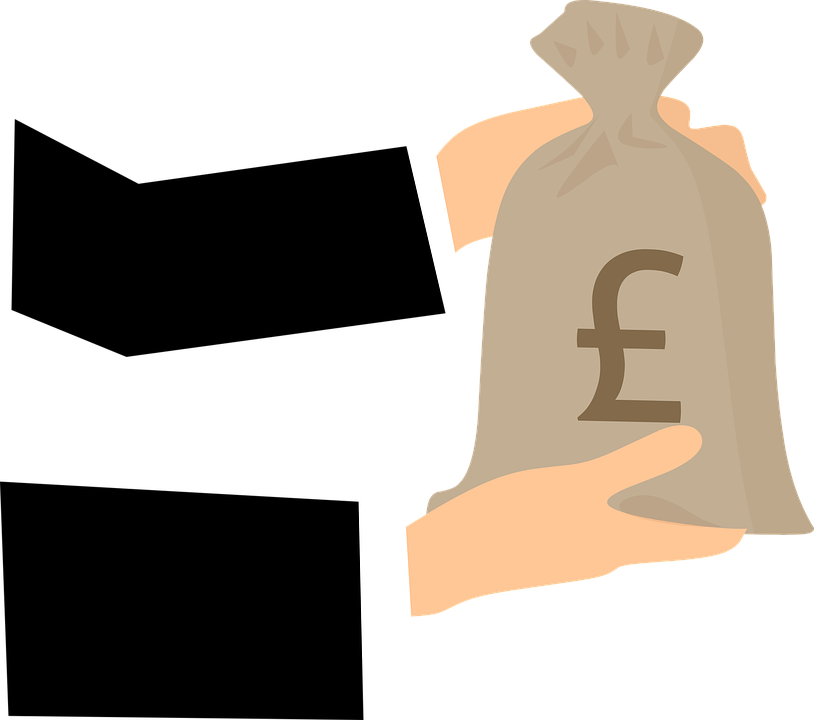Whether you’re planning to expand your business with new premises or equipment or to invest in recruitment or marketing, you may be considering taking out a business loan.
To help you decide whether a business loan is the right finance option for you, here we take a look at what they are, what you’ll need to apply for one, and the alternatives, as well as answering some common questions about business loans.
What is a business loan?
A business loan is a form of borrowing for commercial businesses rather than individuals. Some may be more suitable for start-up businesses while others may only be suitable for businesses with a certain number of years of filed accounts.
You’ll usually repay the amount you borrow in monthly instalments over an agreed period of time, with interest on top. Typically, business loans are for amounts from around £1,000 up to potentially millions.
Contact us today to discuss Business Loans and how we can assist you.
Are business loans secured?
Business loans can be secured or unsecured. A secured loan is one that is linked to an asset, such as property, vehicles or stock. This means that if you can’t make payments, the lender may take your asset to pay for the loan.
As there is less risk to the lender, secured loans are usually for higher amounts and interest rates are usually lower.
Unsecured loans don’t require an asset as security so tend to be for smaller sums and come with higher interest rates. Unsecured loans may be more suitable for small businesses without large assets.
Some lenders will ask for a personal guarantee from a company director for an unsecured loan.
What types of business loan are there?
Some of the most common types of business loans include:
Bank loan
With a bank business loan, you’ll borrow a set amount of cash from a bank or building society over an agreed period of time, with interest.
Government-backed Start Up Loan
This is an unsecured personal loan backed by the government to start or grow your business. To apply for this type of loan, you must live in the UK, be over the age of 18 and have (or plan to start) a UK-based business that’s been fully trading for less than 24 months.
Start Up Loans have a fixed interest rate of 6%, are for amounts of from £500 to £25,000, and you can repay the loan over a period of one to five years.
Short-term business loan
Short-term business loans are aimed at commercial organisations which want to borrow for a few months, rather than years, and don’t want to be tied into lengthy repayments. They can be over a period of weeks or months. However, they tend to charge higher interest rates than other loans so make sure you know what these are.
Peer-to-peer business loan
With a peer-to-peer loan (or a P2P), you’ll borrow money from private investors rather than a bank. You will usually be matched to these investors through an online platform. You may need to pay a fee to arrange the loan, so pay careful attention to any fees, charges and interest rates before committing.
Cash advance
A cash advance business loan (also known as merchant cash advance) allows you to borrow money against your business’ future credit or debit card sales. The amount you repay monthly will be based on a pre-agreed percentage of your card sales, so you’ll pay more when your business is doing well and less when it’s not.
Invoice finance
This is when a lender uses your unpaid invoices as security to lend to you. There are two main types of invoice financing:
- invoice factoring – you’ll be able to borrow a percentage of the value of your invoices and the lender will collect payment direct from your customers. The lender will then take its costs and you’ll be paid the remaining balance.
- invoice discounting – this allows you to borrow against the value of your invoices, but you’ll collect money from your customers and then pay your agreed fee.
How do you decide which type of business loan to apply for?
When considering taking out a business loan and deciding which type to apply for, you’ll need to think about:
- how much money you want to borrow
- which loans are suitable for your business type – some loans such as Start Up Loans are only suitable for new businesses, while cash advance business loans are only suitable for businesses that generate a certain amount of revenue via card payments
- how much you can afford to pay back each month, taking the interest rate into account
- the length of time you’d like to take the loan out for. While it may be tempting to take a loan out over a longer length of time, you may end up paying more overall in interest
- comparing the fees and charges with each loan you are considering.
It’s important to compare your options and to shop around before committing to an option or lender, looking at the overall costs of borrowing.
What do I need to apply for a business loan?
Before you apply for a business loan, you’ll need to be clear about:
- the amount you’d like to borrow
- what you are borrowing the money for
- how much you can afford to repay each month
- how long you’ll need to repay the loan.
As with other types of loans, your business’ credit rating is likely to be checked, with more competitive loan terms generally being offered for those with a good credit score.
Some ways to improve your business’ credit score include:
- checking your credit report and disputing any errors
- paying bills on time
- if you’re a limited company, filing full, rather than abbreviated, accounts to Companies House
- making sure you have enough money in your account to cover any planned payments
- only applying for credit when you need it. Making lots of applications suggests you are struggling financially. You could ask for a quote instead
- keeping all of your information, such as your business address, up-to-date. Notify suppliers, as well as Companies House, of any changes
- avoiding county court judgements (CCJ) as these are recorded on your credit report.
You may also be asked for copies of your business accounts, bank statements, details of profits and loss, tax returns, a business plan and proof of address and IDs of company directors.
Once you have gathered your documentation and have decided on the type of business loan most suitable for you, you can shop around then apply.
What should I consider when comparing business loans?
When comparing loans, some important elements to check are:
- whether you are eligible for the loan you are considering. Always check the lender’s requirements carefully before applying
- what the interest rates are for the loan and whether they are fixed or variable. It’s worth remembering that Representative APR means that the rate, or lower, is offered to at least 51% of applicants, so 49% of applicants will likely be offered a higher rate
- whether your loan provider offers a repayment holiday (a few months off paying). However, taking a break from paying will mean that it will take you longer overall to pay off the loan and you’ll pay more in interest in the long run
- whether there’s an early repayment charge on the loan.
What are the alternatives to taking out a business loan?
If you don’t think that a business loan is for you, there are other options including:
- Business credit cards – if you are looking to borrow smaller sums, a business credit card may be suitable. You may benefit from an interest-free period on your purchases. However, always pay your balance off each month to avoid paying interest charges or fees and check what the card’s annual fee and interest rates are after any 0% period.
- Crowdfunding – this allows you to raise investment, often by pitching your business idea online, in exchange for rewards for the investors you attract. You could sell a stake of your business through equity crowdfunding or offer a reward such as free products or tickets through reward crowdfunding.
- Overdrafts – your business account may have an overdraft which is either interest free or a low APR. This is usually only suitable for small amounts, though, and you’ll need to check the terms of your overdraft and stick to them.
Frequently asked questions
What happens if I miss a payment on a business loan or can’t pay it back?
If you miss a payment, you’ll have to make up the missing amount as soon as possible. You’ll probably have to pay a late payment fee and extra interest and may have to pay an administration fee too, depending on the terms and conditions of your loan. If you’ve taken out a secured loan, your assets may be seized if you default on the loan completely.
Defaulting on your loan can affect your credit score and how likely you are to be able to take business finance out in the future. The timeframe for defaulting will be detailed in your loan contract so read this carefully. If you can’t pay back your loan, the lender may take legal action to reclaim it.
Do I need to have a business account to take out a business loan?
This will depend on the type of loan you choose and who you want to borrow the money from. If you borrow from your bank, it may be more straightforward as it will know your business history – but always shop around to make sure it’s a competitive way to borrow.
Can I take out a business loan if I have a poor credit rating?
You may be able to take out certain business loans with a poor credit rating, but you are likely to be offered higher interest rates and more checks may be done on your business. You may be more likely to be approved for a secured loan than an unsecured one.
How long will it take to get a business loan?
The length of time it takes your loan to go through will depend on a number of factors such as the type of loan you are applying for, the documentation you can provide, the amount you are borrowing and whether you are applying for a secured or unsecured loan.
With a secured loan, as an example, you will need to allow time for your assets to be valued.
By Cathy Toogood
Source: Forbes









